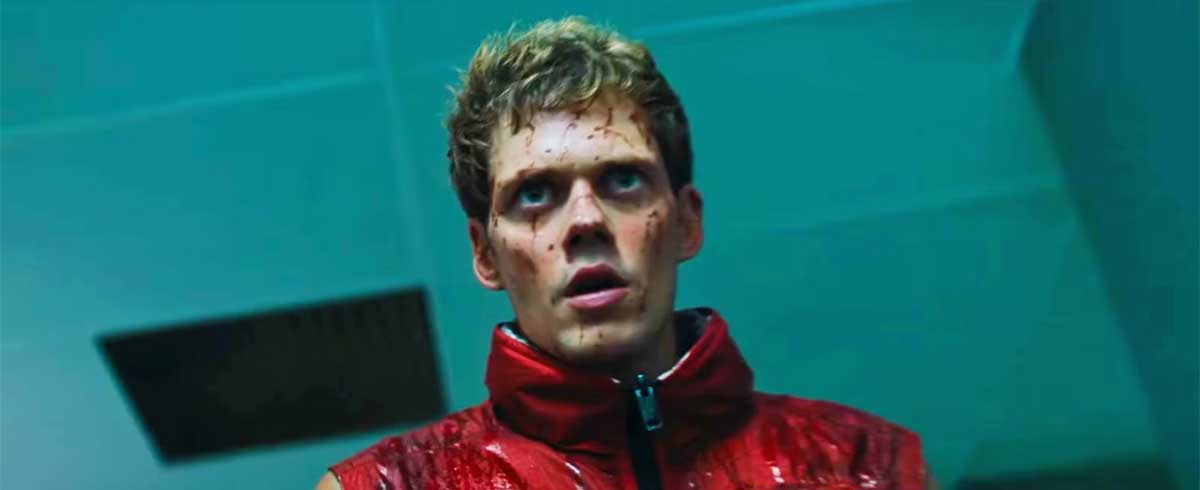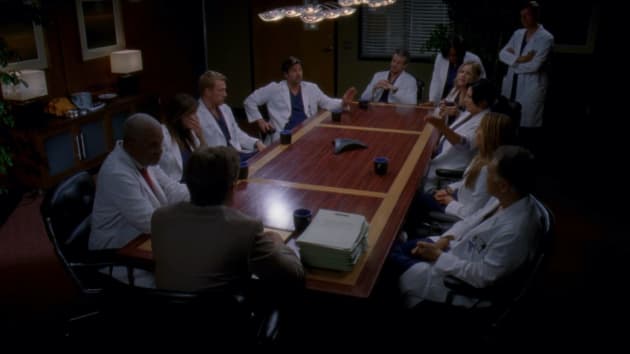

There were many Elvis Presleys. The young, gorgeous Elvis who transformed pop music with a quiver of his voice and a wiggle of his hips. The movie star Elvis, who cranked out one musical after another and nearly lost his audience for good. The sequined jumpsuit Elvis, thrusting and karate kicking his way across the stage of the International Hotel in Las Vegas. And finally, the bloated, exhausted Elvis who seemingly worked (and drugged) himself to death.
The best thing you can say about Baz Luhrmann’s Elvis is it contains every single one of those Elvises, and all of them are played with impressive fidelity and energy by Austin Butler. A working Hollywood actor for more than 15 years, Butler firmly establishes himself in Elvis as a magnetic screen presence of the highest order. In his prime, Elvis was one of the greatest live performers in history, and Butler proves himself up to the task of embodying the King of Rock & Roll. Whether the movie is worthy of him — or of Elvis himself — is another matter. For all of Luhrmann’s glittery visual panache, Elvis plays like a very conventional and very overstuffed biopic about an unappreciated genius who was exploited by the people around him.
The key figure doing the exploiting in this case is Elvis’ longtime manager Col. Tom Parker, played in the film by Tom Hanks. Although Hanks bears little physical resemblance to the real Parker (and he looks ridiculous beneath an enormous pile of prosthetic makeup), his interest in the material makes sense. As an actor and a filmmaker, Hanks has made a slew of movies about this period in American history and the music business. Elvis is right in his wheelhouse.
Hanks’ Parker narrates Elvis from his deathbed, following a collapse in 1997. As morphine drips ominously into his wrinkly arm, Parker flashes back to the earliest days of his relationship with his most famous client. As the story progresses, Parker repeatedly pleads his innocence in any role in the great star’s premature death at the age of 42.
There are many ways Hanks could have approached this role. The route he chose was to play Col. Parker as a James Bond villain, complete with outlandish yet implacable foreign accent, corpulent face, garish clothes and cane, and even a headquarters high atop the Las Vegas strip. All that’s missing is a cat to stroke as he fiendishly plots to keep Elvis from hiring a better manager or finally undertaking the international tour he spends years trying to get off the ground. (Parker, real name Andreas Cornelis van Kuijk, was an illegal immigrant from the Netherlands. Elvis strongly suggests he prevented Presley from ever venturing overseas because of his lack of a passport and his fear that if he ever left the country he would be deported.)
A028C003_200930_R0E8_4K_rec709_CDL_graded_1420635.tifWarner Bros.
It’s a rare bad performance from Hanks, but the larger issue is that the emphasis on Parker and his perspective adds nothing to the movie’s portrait of Elvis Presley. For all his screen time and narration, Parker remains a simplistic figure: Greed, manipulation, and little else. If Parker had interests beyond wringing every last cent possible from Elvis Presley, or any sort of private life or family, you won’t see them on display here; they never come up even a single time. You’ll learn more about this man skimming his Wikipedia page on your way out of the theater than you do in this 159-minute movie.
Elvis himself fares better, if only because Butler is so thoroughly compelling at every step along his journey. He’s uncannily good at channeling Presley’s electric charisma on stage, and Elvis is never better than when Luhrmann sits back and lets Butler perform. His recreations of the ’68 Comeback Special and Elvis’ Las Vegas debut are thrilling. If Butler’s acting career ever fizzles out, he could surely make a very good living as Vegas’ best Elvis impersonator.
But Lurhmann only seems to understand — or at least is only interested in — Elvis the icon, not Elvis the person. There are surprisingly few scenes where Elvis and Parker just talk, and even fewer that give us a window into Elvis’ mental state when he’s not performing, thinking about performing, or worried about whether he’ll be able to perform in the future. (One brief scene where Elvis brushes his teeth and has a conversation with his wife Priscilla feels like an aberration the movie could have used a lot more of.)
Elvis focuses so intensely on certain small chunks of Elvis’ life that long periods wind up getting glossed over in absurdly rushed montages. The pacing is off-putting; in the span of about four minutes, Elvis gets served with a draft notice, heads overseas to join the Army, and his mother dies of a broken heart, supposedly because she was so fearful about his military service. But the film contains just a single scene of Elvis in uniform, where he woos the 14-year-old Priscilla (played by the 24-year-old Olivia DeJonge) by telling her of his lifelong dream to become a movie star.
B314C005_210216_R0EA_4K_rec709_CDL_graded_1429634.tifWarner Bros.
One scene later, Elvis sits atop the decaying Hollywood sign, contemplating the metaphorical ruins of his fading career. “I used to dream of being a great actor like Jimmy Dean!” Elvis moans. He went from dreaming of movie stardom to becoming the highest-paid actor in the film business to a has-been in about 45 seconds of screen time.
The whole film is like that. Luhrmann, who loves to luxuriate in images of over-the-top opulence, clearly adores Elvis’ music and fashion sense, and he credits him and his irrepressible dance moves with awakening America’s latent sexuality in the middle of the 20th century. Another long chunk of the film chronicles Presley’s reaction to the threat of arrest if he can’t keep from thrusting his pelvis on stage. (Spoiler alert: Elvis cannot keep from thrusting his pelvis on stage.) Luhrmann absolutely conveys Presley’s impact and importance even as he celebrates his style, swagger, and songs.
But rather than chart Elvis’ gradual shift from proto-rocker to Vegas crooner, it digs into a handful of moments — usually concerts that let Butler flex his talents — and skips over any of the scenes that might explore Elvis’ musical evolution or his decline into drugs. Every Elvis does appear, but how they connect to one another is mostly left to the audience’s imagination.
Additional Thoughts:
-I don’t demand total historical accuracy from a movie, but there are a lot of moments in Elvis that are obviously, distractingly phony. For example: In Elvis, Robert F. Kennedy is shot in the midst of filming the famous 1968 Comeback Special, temporarily shutting down production while Elvis abandons the show’s planned, family-friendly ending in favor of a new protest song that Elvis writes himself. The song, “If I Can Dream,” was written for the special, but not by Elvis. Plus, Kennedy died weeks before, not the night before Presley shot the finale.
-In true Baz Luhrmann fashion, even his writing credit on Elvis is gaudy: He’s credited once for the film’s story (with Jeremy Doner) and twice for the film’s script (with Sam Bromwell and with Craig Pearce).
RATING: 5/10
































